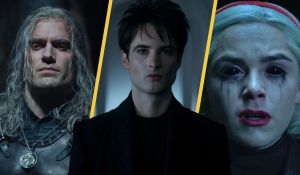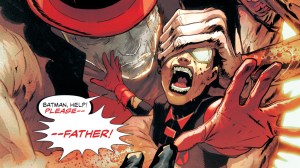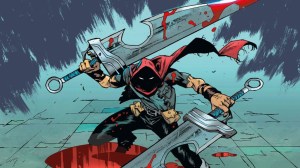The Doctor is many ways exactly the kind of fairytale hero we root for — a madman in a box who travels space and time to save civilizations, defeat monsters, and stand up for what’s right. But over sixty years of adventures through space and time, Doctor Who has made it clear that there’s a darker side to its Time Lord protagonist. Whether driven by grief, overconfidence, or simply the weight of impossible choices, The Doctor occasionally pushes the boundaries between right and wrong, breaking the very promise (‘Never Cruel or Cowardly’) they’ve sworn to keep. And when they do, the consequences are often profound — for both The Doctor and the Universe at large. Here are seven moments in time and space where The Doctor undeniably took things too far.
Videos by ComicBook.com
1) Drowning the Racnoss — “The Runaway Bride”
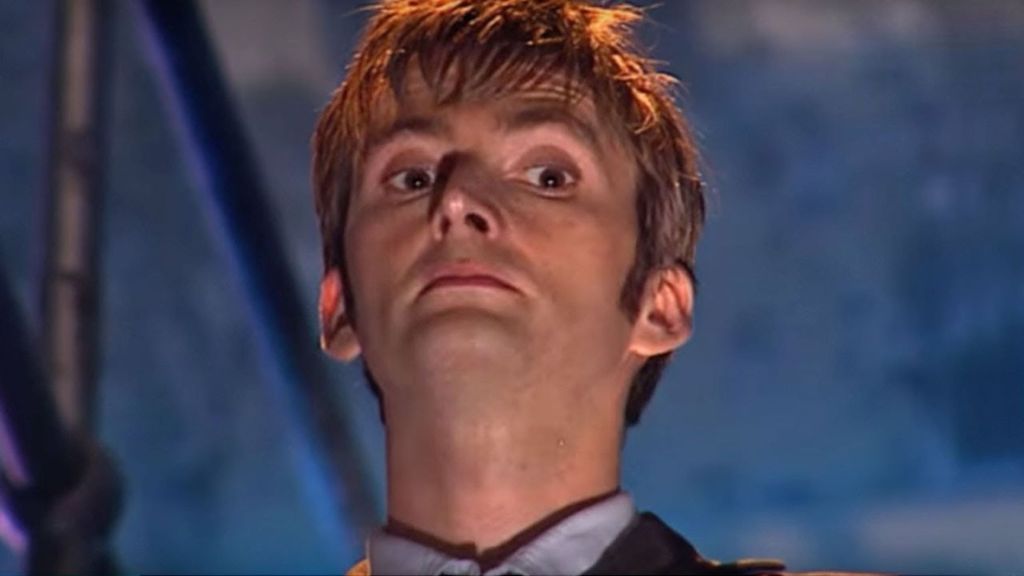
In this fan favourite Tenth Doctor Christmas special, David Tennant’s iteration of the renegade Time Lord faces off against the Racnoss — an ancient, spider-like being, threatening to awaken her children beneath the surface, thus destroying the Earth. After trying and failing to reason with her, The Doctor floods the tunnel leading to them… knowing it will kill the Racnoss’ offspring and effectively causing the extinction of the species.
It was perhaps the first instance since Russel T Davies’ first reboot of the show began in 2005, where we saw the Doctor do the ‘wrong thing.’ Sure, he’d come close, almost killing the defenseless Dalek in “Dalek,” or nearly wiping out half of Earth just to kill the Daleks in “The Parting of the Ways” but in these instances he stops short of committing literal genocide… Here, he watches coldly as the Racnoss perish despite an ever-caring Donna Noble urging him to stop. For a new generation of fans, it was one of the first signs of just how dangerous The Doctor could be without someone to ground him. Wrapped up in his pain at losing Rose in the series two finale “Doomsday,” he is a force to be reckoned with.
2) The Time Lord Victorious — “The Waters of Mars”
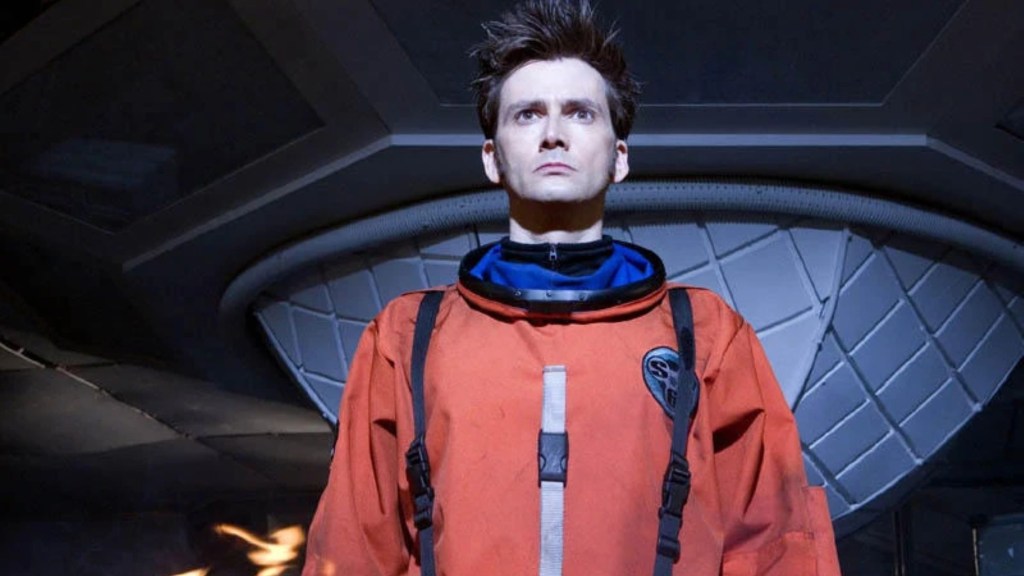
When you think about The Doctors darkest moments, the ‘Time Lord Victorious’ storyline probably comes to mind. “The Waters of Mars” is often considered one of the most compelling Doctor Who stories of the modern era, and for good reason. After visiting the red planet and meeting the doomed crew of the first manned mission to Mars, The Doctor decides to change history and save their lives. This might seem like an act of mercy, except, The Doctor knows that the destruction of Bowie Base One and the resulting deaths of its crew is a fixed point in time that cannot be changed without cataclysmic consequences.
Realising that since he is the last of his kind, there is no one left to hold him to account, in a moment of pure ego, The Doctor saves Captain Adelaide and her remaining crew — believing he alone now has the right to determine their fate – ‘The Time Lord Victorious.’ But his arrogance is short-lived. Adelaide takes her own life to preserve the timeline, and The Doctor is left shaken, realizing that no one, not even him, can bend time to their will. Capped off with a haunting musical score by Murray Gold, it’s a shocking scene, and one that has long been remembered by fans as a moment of true hubris for The Doctor.
3) Torturing Kid — “The Interstellar Song Contest”
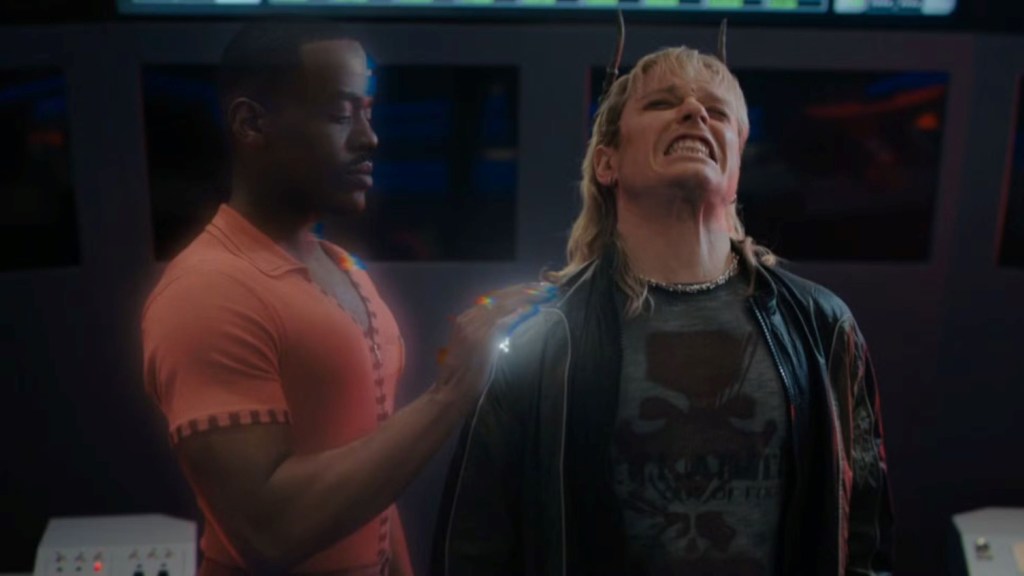
In Season 2, Episode 6 of the “RTD2” era, (denoting Davies’ second stint as show runner and second soft reboot of the show spanning from the 2023 60th anniversary specials onwards) Ncuti Gatwa’s fifteenth Doctor and Belinda find themselves at the 803rd Interstellar song contest! But what originally seems set to be one of Who’s more light-hearted episodes, turns into one of its darkest when it is revealed that behind the glitz and glamour, Kid, a rebel member of the ostracized Hellion race, is plotting the deaths of all 3 trillion people watching the show in retribution for the destruction of his home planet.
Now, no one’s saying the calculated murder of three trillion people is justified… but neither is The Doctor’s response to discovering the plot. He essentially tortures Kid, repeatedly using a hologram to taser him. To make matters worse, it’s unclear if The Doctor is aware of the reasons behind Kids desire for revenge before taking out his anger on the Hellion. Some viewers criticised the heavy-handedness of writer Juno Dawson when dealing with sensitive subject matter, especially since the incident is somewhat brushed over in the remainder of the episode. Questionable optics of The Doctor condemning a freedom fighter aside, the move felt wildly out of character for The Time Lord who despite moments of arrogance, has rarely been seen to resort to physical violence.
4) Manipulating Ace — “The Curse of Fenric”
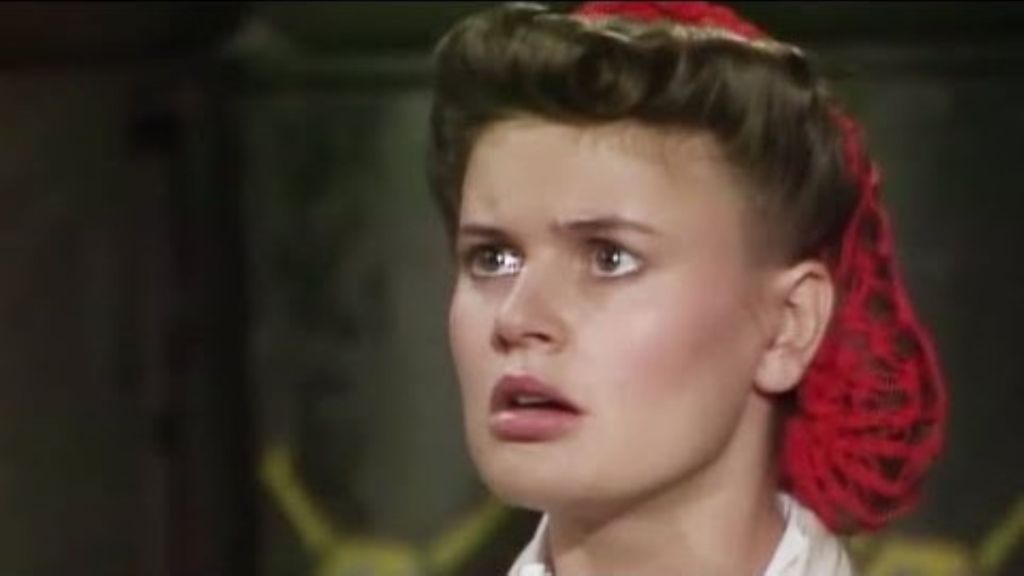
Rule One, The Doctor lies… The Doctor can certainly be cold and calculating when the occasion demands, and he’s not above resorting to manipulation if it means securing the best outcome. It’s one thing when this is done to, say, an obtuse side character to get them to toe the line, but it’s another matter when The Doctor demonstrates this kind of callous behaviour towards a beloved companion. In the Seventh Doctor serial “The Curse of Fenric,” Sylvester McCoy doesn’t just manipulate companion Ace — he pushes her to the very brink of despair! Pretending that he doesn’t care whether she lives or dies, The Doctor plays a hard and fast with her emotions to bring down the ancient evil force Fenric.
It’s later revealed that he was simply trying to break Fenric’s psychic hold over Ace, (who it turns out is one of Fenric “wolves,” descendants of his original followers who can therefore be manipulated by his powers), but the emotional cost is immense. Ace, quite rightly, feels betrayed and dehumanized, unsure if she can really trust The Doctor. It’s a powerful, painful moment that underscored how cruel the Seventh Doctor could be beneath the kind exterior. While the scene doesn’t involve actual violence, it’s a worthy edition to our list as it highlights a deeply manipulative side of the Doctor. The ends may have justified the means, but putting a child (Ace is just sixteen when she begins travelling with The Doctor) through psychological torment was a step too far — and a reminder that The Doctor’s alien morality doesn’t always align with ours.
5) Executing Solomon — “Dinosaurs on a Spaceship”
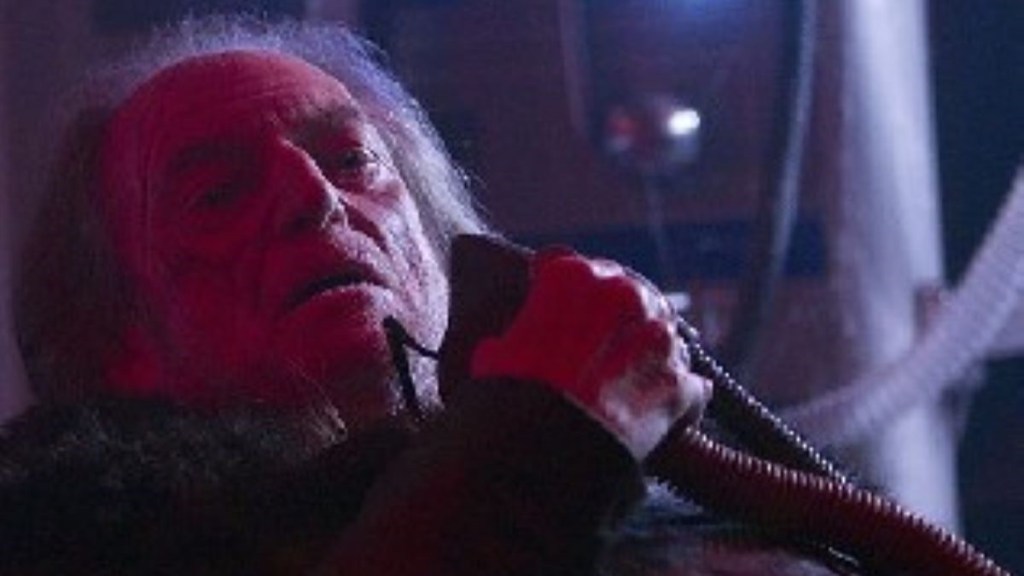
In Doctor Who’s answer to Jurassic Park, The Doctor and companions Amy and Rory (and Rory’s father Brian who unwittingly finds himself along for the ride) land on a Silurian Ark ship, and soon discover the ship contains precious cargo in the form of real living dinosaurs! But the excitement is short lived when they learn that Solomon — an unscrupulous black-market trader has jettisoned the ships Silurian passengers, killing them in order to steal the dinosaurs for his own profit. In the light of this discovery, the Eleventh Doctor makes a chilling call. There’s no trial and no second chances, instead he allows Solomon’s ship to be destroyed by missiles leaving him to die.
It’s not The Doctor’s first time dealing with cold-hearted killers (think Kazran Sardick in A Christmas Carol) but rarely does he stoop to their level, so the coldness with which he delivered Solomon’s rough justice felt unnecessary and unsettling. The admittedly repellent Soloman is portrayed masterfully by none other than David Bradley in his first appearance in Doctor Who, before he enchanted us with his appearance as the late great William Hartnell in the 50th anniversary celebration drama An Adventure in Space and Time and when on to make many subsequent appearances in Doctor Who, notably in the Twelfth Doctor episode “Twice Upon a Time”.
6) Leaving Clara to Decide Earth’s Fate — “Kill the Moon”
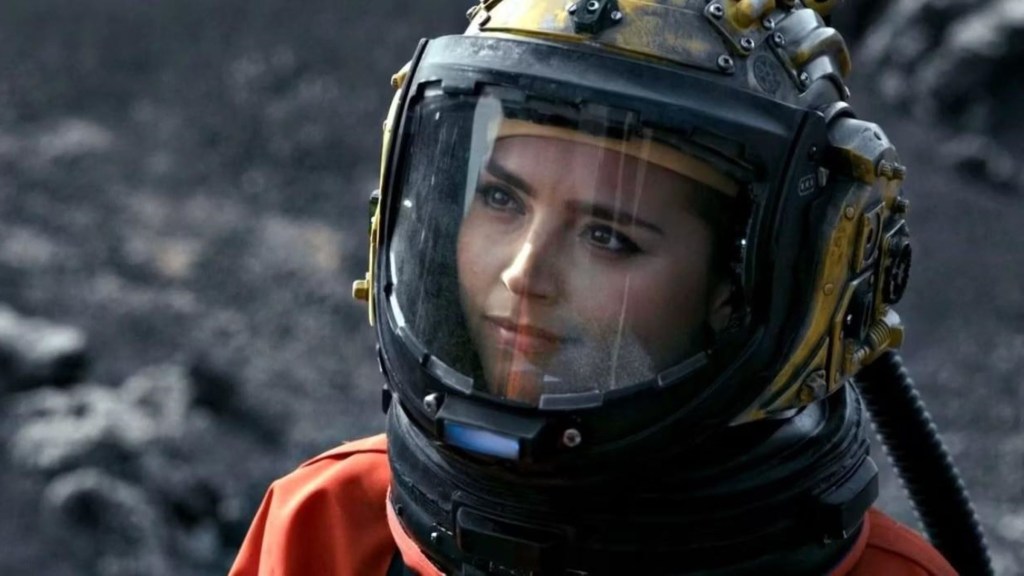
One of the many reasons we love our renegade Time Lord is that unlike his people, who have vowed not to interfere in the affairs of other planets or peoples, The Doctor isn’t afraid to step up when no one else will. However, in “Kill the Moon,” the Twelfth Doctor took a major step back — literally. When humanity must decide whether to destroy the moon (which turns out to be a giant alien egg) or risk potential extinction, The Doctor left Clara behind to deal with the crisis, insisting it’s not his decision to make, despite having interfered in Earths affairs on many similar occasions in the past!
The ethics of letting humanity determine its own fate makes sense, but leaving Clara with the emotional burden of making this potentially planet-ending decision felt truly cold. The Doctor’s abandoning Clara, (and indeed humanity when they needed him most), put a serious strain on their relationship. While the episode itself received mixed reviews, with some viewers taking issue with its implausibility and scientific inaccuracy, Jenna Coleman was lauded by critics and fans alike for her masterful performance in the climax of the episode when Clara rightly calls The Doctor out for his behavior – “You walk our Earth, Doctor, you breathe our air… you can damn well help us when we need it.” For many fans, it was a turning point in their journey with Peter Capaldi’s Twelfth Doctor, showing what he was capable of when his signature aloof detachment went too far.
7) Saving Clara — “Hell Bent”
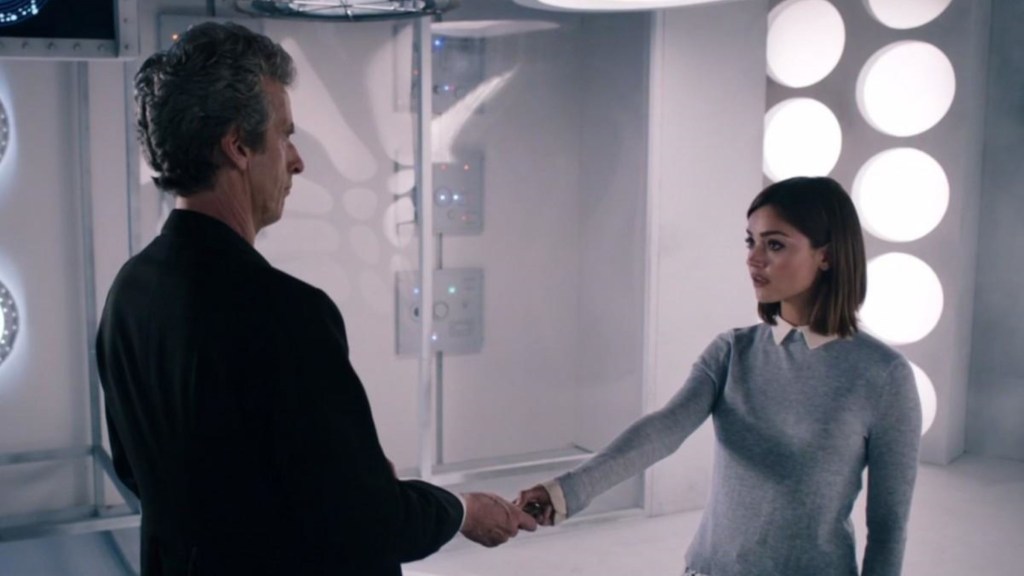
We all know The Doctor doesn’t like endings, but no one expected him to risk time itself to avoid saying goodbye. By the time the events of “Hell Bent” occurred, long time and oft debated companion Clara Oswald was already long dead, having met her untimely demise in “Face the Raven,” but The Doctor simply couldn’t accept it. Arriving on Gallifrey, the Twelfth Doctor breaks every rule in the book, stealing (another) TARDIS, and pulling Clara out of her timestream in the final moments before her death (another fixed point) in a desperate attempt to save her — nearly destroying the fabric of reality in the process.
The move is a powerful act of love, a testament to just how much the Doctor cares for Clara, but it’s also wildly irresponsible. The Doctor risks the entire universe arguably to avoid his own grief, eventually wiping his own memories of Clara rather than face her loss when it becomes clear he cannot save her. Some fans saw it as a selfish move that betrayed the very lessons The Doctor teaches about everything having its time and the sanctity of life and death, However, many viewers praised the episode, and skilful directing by Rachael Talalay for its powerful exploration of grief, love, loss and the difficulty of letting go.
Do you think The Doctor was justified in these moments? Let us know in the comments below!
Doctor Who, is streaming now on BBC iPlayer (UK) and Disney+.






